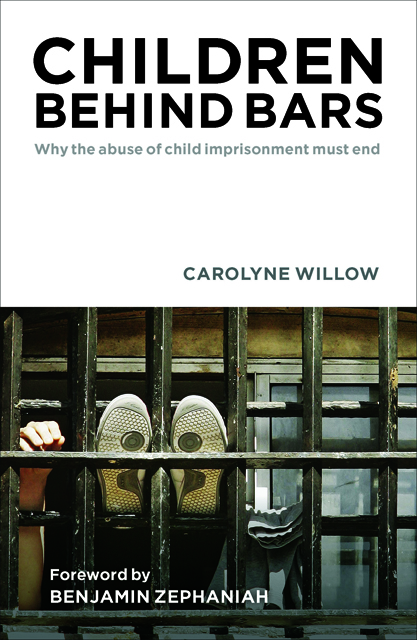Book contents
- Frontmatter
- Contents
- List of tables
- About the author
- Acknowledgements
- Preface
- Foreword by Benjamin Zephaniah
- one Introduction
- two ‘Things were not right at home’
- three ‘They just don’t listen’
- four ‘I think it’s quite like rape’
- five ‘I can’t breathe’
- six ‘What gives them the right to hit a child in the nose?’
- seven ‘We should be able to hug our families’
- eight ‘Every night I’m starving’
- nine Children were ‘given bags to urinate in’
- ten ‘The violence is unbelievable’
- eleven ‘Listen to the kids’
- twelve They shouldn’t be there
- Notes
- Index
seven - ‘We should be able to hug our families’
Published online by Cambridge University Press: 15 April 2023
- Frontmatter
- Contents
- List of tables
- About the author
- Acknowledgements
- Preface
- Foreword by Benjamin Zephaniah
- one Introduction
- two ‘Things were not right at home’
- three ‘They just don’t listen’
- four ‘I think it’s quite like rape’
- five ‘I can’t breathe’
- six ‘What gives them the right to hit a child in the nose?’
- seven ‘We should be able to hug our families’
- eight ‘Every night I’m starving’
- nine Children were ‘given bags to urinate in’
- ten ‘The violence is unbelievable’
- eleven ‘Listen to the kids’
- twelve They shouldn’t be there
- Notes
- Index
Summary
One of the enduring lessons I learned from my time as a young social worker was the tremendous capacity of children to excuse their parents’ failings. This was matched by a striking optimism in so many children that one day their mothers and fathers would give them the love and attention they rightly yearned. Supporting children in these circumstances was often painful and frustrating, as they frequently reproached themselves for being in care. (Children have a remarkable capacity for taking responsibility for catastrophes way beyond their control.) Connected to this self-blame was the misery and mayhem caused by angry and frightened children convinced that their new carers were destined to join their scrapbook of rejecters. I discovered early on that being able to appease foster carers, in the hope of averting more crushing loss for children, is a primary social work skill. As one child offender reported during a study into the wellbeing of young people in the youth justice system:
I went through 11 foster carers in four years. That was not social services’ doing. It was my own doing. I could have been with the first foster carer I was with but I just ruined it because I thought if my mum doesn’t want us then no-one wants us!
Into their teenage years, the children on my caseload would often undertake their own detective work as a precursor to a happy family reunion that mostly never happened. I had studied child attachment and the effects of separation, but it was only through working with children in care that I came to understand the glowing torch many of them carry for their imperfect parents.
Neither the prison service nor the Youth Justice Board (YJB) held any central records on the number of children in custody who were subject to care orders or had been formerly looked after by local authorities when the prisons inspectorate conducted a review of this constituency in 2010. The inspectorate estimated that at any one time there are around 400 children in prison who have been in care. Its latest annual survey of children in prison found a third of boys and 61% of girls had spent time in care. Four in every 10 of the boys in a specialist unit for especially vulnerable children in Wetherby young offender institution had been in care.
- Type
- Chapter
- Information
- Children behind BarsWhy the Abuse of Child Imprisonment Must End, pp. 155 - 178Publisher: Bristol University PressPrint publication year: 2015

